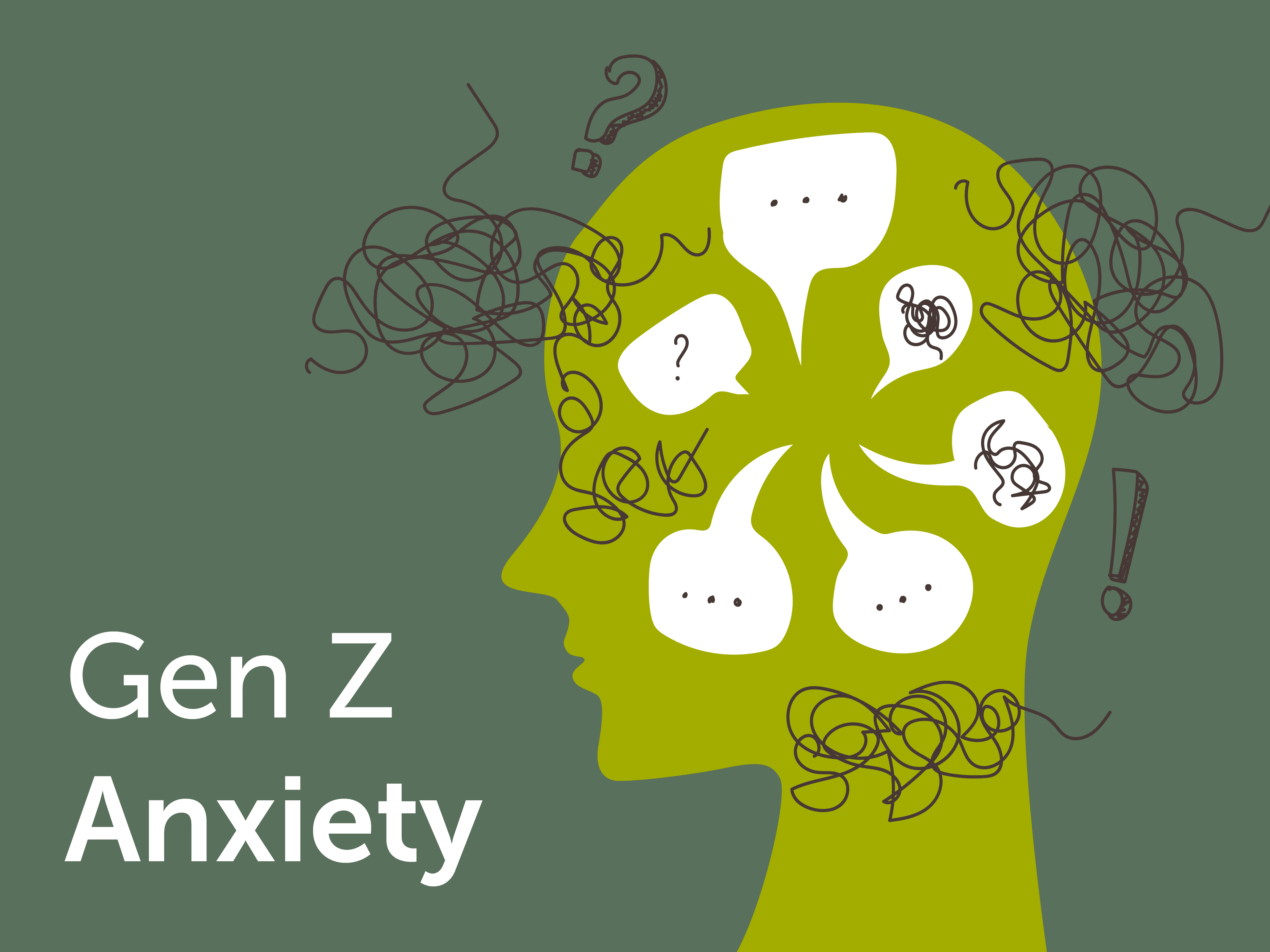
Why Does Gen Z Have So Much Anxiety?
In our Gen Z State of Mental Health Report, we discovered the top diagnosed mental health condition among Gen Z is anxiety. But why is that? In a follow-up to our initial research, we surveyed nearly 1,000 Gen Zers who struggle with anxiety to ask them about what and who causes them to have anxious thoughts.
According to our research, more than 1 in 2 struggle with anxiety daily, and 1 in 3 are taking anxiety medication to try and find relief. But some are turning to other drugs or alcohol to cope.
Top 5 Causes of Anxiety for Gen Z
 More than half (54%) of Gen Z say their anxiety has been worse in 2023. The most common cause of anxiety among them is the future. Nearly half of Gen Z said this was their biggest apprehension. Another major concern is cash, with 45% anxious about finances. Other top anxieties include work, social activities, and relationships.
More than half (54%) of Gen Z say their anxiety has been worse in 2023. The most common cause of anxiety among them is the future. Nearly half of Gen Z said this was their biggest apprehension. Another major concern is cash, with 45% anxious about finances. Other top anxieties include work, social activities, and relationships.
Even though so many deal with it, anxiety can be isolating. Nearly half of Gen Z do not feel like others are empathetic to their anxiety. There are certain people that the generation feels are especially uncaring when it comes to their mental health. More than 1 in 3 (36%) do not feel like their parents are sympathetic to their mental health struggles. But coworkers or bosses (34%) and extended family (30%) are not far behind.
How Gen Z Copes With Anxiety

A lot of Gen Z turn to food to try to handle anxiety. More than 2 in 5 eat unhealthy food and 30% binge eat while trying to cope with their anxiousness. About 1 in 3 resort to substances such as marijuana, edibles, and vapes as well as alcohol.
It’s also clear Gen Zers have a complicated relationship with their phones. Nearly 2 in 5 (37%) feel their phone interferes with daily activities, work, and relationships. However, 54% admitted to excessively using social media or doomscrolling while trying to deal with anxiety. A whopping 96% of Gen Z use social media, mainly using sites like YouTube, Instagram, TikTok, Reddit, and Snapchat.
Nearly 3 in 4 (74%) get anxious making calls or talking on the phone, and yet 91% of Gen Z sleep with their phone within arm’s reach. Nearly 3 in 5 (57%) feel panic when their phone battery is running low or the internet isn’t working, and 22% have reported feeling increased heart rates, sweating, and restlessness in situations when they can’t use their phone.
Gen Z Anxiety Around the Holidays

The holidays often make anxiety worse. More than half (53%) of Gen Z find this season worsens their anxiety. Some key reasons for holiday stress include:
- Financial pressures
- Social gatherings and parties
- Family gatherings
The increased pressure and anxiety around Thanksgiving, Christmas, and New Year’s are leading to some additional bad health habits. More than 2 in 5 (43%) Gen Z admitted they eat more during the holidays because of anxiety and 23% drink more.
Positive Coping Mechanisms for Anxiety

Nearly 1 in 3 Gen Z with anxiety are using medication to help them manage their mental health. On average, Gen Zers with anxiety started taking meds at 19 years old, and of those who take anxiety medication, 83% take it daily.
Besides medication, many have go-to coping mechanisms to try and improve their anxious thoughts. Nearly half (48%) go on walks or hikes. Others try to stimulate their brain by turning to creative activities like painting, writing, or playing a musical instrument. 2 in 5 go to therapy. In fact, statistics show 53% have gotten professional help for their mental health, and 18% are considering it.
If you struggle with anxiety, know that you don’t have to go through it alone. It’s one of the most common mental health struggles, and about 1 in 3 Americans experience anxiety at some time in their lives according to the National Institute of Mental Health. Don’t hesitate to reach out to a mental health professional.
Methodology
In September 2023, we surveyed 997 Gen Z who deal with anxiety and asked them how it impacts their lives. Respondents ranged in age from 18 to 26 with an average age of 23. 47% were women, 47% men, and 6% non-binary.
For media inquiries, please contact media@digitalthirdcoast.net.
Fair Use
When using this data and research, please attribute by linking to this study and citing Harmony Healthcare IT.






